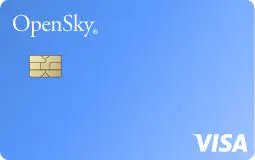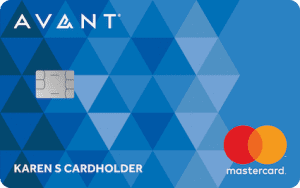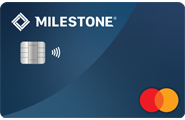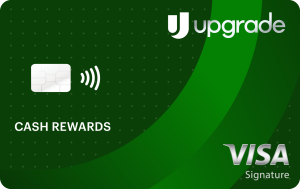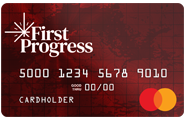Table Of Content
Prepaid debit cards functions in a combination of a credit card and a checking account. Bank holding companies issue prepaid cards.
Another thing to note is that major credit card companies such as Visa, MasterCard, and American Express brand prepaid cards.
Key Takeaways
- Prepaid cards differ from both credit and debit cards, in the sense that there is no line of credit involved and it is not linked to your checking account. Instead, you can add money to the card at the bank it was issued, or even at the store.
- Prepaid cards are popular with some travelers since by using these cards people can avoid carrying large amounts of cash with them, which can be very risky.
- Prepaid cards do not have any effect on the credit score of an individual, since there is no borrowing involved.
What Is A Prepaid Card?
The concept of prepaid cards is not hard to understand. You can consider them the offspring of credit cards and debit cards.
On the contrary, they aren’t like credit cards because there’s no line of credit. They’re not like a debit cards because they aren’t linked to a checking account. Instead, you can add money to your prepaid card at your local convenience store, the bank where you got the card, or through e-funds transfer.
You can’t tell them apart from any other type because they have a MasterCard, Visa, or American Express logo, a card number, a signature stripe on the back, and company branding.

How Prepaid Debit Cards Work?
The features of prepaid credit cards can vary, but they have the following features in most cases.
- Reload options: You can add money through many avenues. For example, you can set up direct deposit, load cash at retailers who accept it, and deposit checks at ATMs. In addition, some of these prepaid cards allow you to make online transfers or mobile check deposits from your smartphone.
- ATM access: There are prepaid cards that give you the power to access accessible nationwide ATM networks. MoneyPass, Allpoint, or cards that banks issue are prime examples.
- Fees: You might have to pay a fee to activate your card. In addition, you may have to pay a fee for making a deposit when you withdraw from an ATM that’s not in its network. Issuers also can apply a monthly fee. However, they usually waive it if you make direct deposits, for instance. Moreover, some issuers charge a fee when you purchase or withdraw from an ATM.
- Account limits: Certain cards have withdrawal limitations. Issuers can also restrict the maximum withdrawal, reload, or spending during a monthly cycle.
Sign Up for
Our Newsletter
and special member-only perks.
Sign Up for
Our Newsletter
and special member-only perks.
How To Use Prepaid Cards: Main Features
For those who don’t use prepaid cards, the concept of loading money on a card in order to spend can seem a bit much. Why is this extra step necessary? Here are the reasons why,
- Money management: It’s easier to budget when you have a prepaid card. You can load the amount you need and be done with it. This prevents you from spending extra money that you don’t have to spend. Moreover, you have the power to monitor your spending online and keep track of your transactions.
- Security: If you frequently make purchases online, you may not want to put your debit or credit information on the web. If you put the money on a prepaid card, there will be no risk.
- Card for the Unbanked: There are a number of Americans that don’t have a checking account. Prepaid cards empower them to make purchases without having huge amounts of cash. They also will be able to shop online as well.
- Habit forming: There are individuals who prefer having a prepaid card before applying for a credit card. This concept teaches them responsible spending and how to pay it back if necessary. Moreover, this is a great way to teach young adults without them having full access to a debit/credit card.
- Gift distribution: If suppressing someone with a gift card isn’t your cup of tea, you can always get them a prepaid card. That individual will be able to use anywhere they want to. This allows for more versatility on the receiver’s end because they choose what they want to spend it on.
- Paychecks: Most businesses give individuals the option to receive their direct deposits right on their prepaid card. The best part of this is that employees can receive their money faster. It also gives the company they work for less paperwork to complete.
How Much Do Prepaid Cards Cost?
Issuers associate a range of fees for prepaid cards.
There are usually initial charges issuers place in order for you to get a prepaid card. We recommend that you monitor our comparison chart for special deals. Some issuers will waive the initial fee if you deposit a certain amount, such as $100. Moreover, some issuers run a promotion where they will give out the cards for free.
Issuers often charge monthly fees for prepaid cards, but the good news is there are plenty of options without these fees. However, most cards (if not all) do charge a fee for ATM withdrawals. It’s also important to keep in mind that fees can vary significantly, with some being much higher than others.
Prepaid Card | Monthly fee | Cash Reload Fee |
|---|---|---|
American Express Serve® Cash Back
| $7.95 | $3.95 |
Walmart MoneyCard
| $5.94 | $0 at Walmart, up to $5.95 at other retailers |
FamZoo Prepaid Debit Card |
$5.99 |
$4.95 |
Bluebird® by American Express | None | $0 at Walmart, up to $3.95 at other retailers |
PayPal Prepaid Mastercard® | $4.95 | Up to $3.95 |
Fifth Third Access 360° Reloadable Prepaid Card | $5 | N/A |
Netspend® Visa® Prepaid Card
| Up to $9.95
| N/A |
Prepaid Cards vs. Debit Cards: How They Compare?
A prepaid card is not the same as having a debit card. Moreover, banks link debit cards to savings and checking accounts. You can’t link a prepaid card to a checking account. The way prepaid cards work is that you have to reload them with funds in advance.
Generally, you can't spend more than the balance available on your prepaid card. However, with a checking account and a debit card, overspending can happen if you're enrolled in an overdraft protection program. In that case, the bank may cover the extra amount, but they’ll charge you an overdraft fee, and you'll be required to pay that fee as well.
Another thing to note is that prepaid cards have fewer protection features than debit and credit cards. Typically, prepaid cards do not include features that cover lost, stolen, or other unauthorized charges. To date, the CFPM made a rule requiring prepaid card issuers to cover these types of protections.
Pros and Cons of a Prepaid Credit Card
Prepaid cards have become mainstream in the U.S. According to NBC News, they are no longer just for those who don’t have a bank account.
However, just like a lot of things in life, prepaid cards do have a downside. Besides the fact you won’t be able to get rewards and points as you get on credit cards, It’s important to consider the pros and cons before deciding if getting a prepaid card is the best choice for you.
Pros | Cons |
|---|---|
Control Spending | Fees |
No Credit Check | No Credit Building |
Privacy | Less Security |
Convenient | No FDIC Insurance |
No Credit Risk |
- Control Spending
If you know that having a credit card is too risky for you, you can always get a prepaid card to avoid accruing debt. Prepaid cards are great for teens and college students.
A regular debit card wouldn’t be bad for them as well. It’s best to know whether or not your prepaid card or debit card overdraft feature allows you to overspend. You can always turn this feature off if you prefer not having it.
- No Credit Check
There are no requirements to get a prepaid card. Since you aren’t borrowing money, the issuer won’t do a credit check to issue you a card.
This is a great option for those with low credit. In addition, it’s a great option for young adults who don’t have credit built up and would like to build their credit.
Some individuals may even live a life with no debt or credit scores. On the other hand, those who have a record of writing bad checks have a difficult time with certain card issuers.
- Privacy
Prepaid cards aren’t linked to any of your personal or financial information. This means that your information can’t be hacked or stolen.
- Convenient
Prepaid cards allow you to deposit funds in a number of ways.
You can deposit through direct deposit, transfer from your checking account, add funds at the issuer’s institution or retail locations that have this option available.
- No Credit Risk
The issuers such as Mastercard or Visa don’t report your card activity to the 3 major credit bureaus. This means you won’t receive credit change notifications.
- Fees
Getting a prepaid card with zero fees is highly unlikely.
Issuers typically require you to pay for activation, ATM withdrawals and more. Even though there aren’t many free prepaid cards, there are some that have fewer fees.
- No Credit Building
Even though a prepaid card doesn’t impact your credit report, it won’t help you to build it either.
The credit bureaus don’t factor in your prepaid card history when they compute your credit score.
- Less Security
Issuers don’t provide the best security for prepaid cardholders. The quality of security varies depending on the card issuer. Some issuers offer better security features than others.
The good news is that effective April 1, 2019, the Consumer Financial Protection Bureau’s new rule will give prepaid card issuers guaranteed legal rights to receive protection against loss and theft.
- No FDIC Insurance
If your bank plummets, the government will offer up to $250,000 of your money that was in your bank account. It’s not the same for prepaid cardholders.
Some of the top prepaid cards might be eligible for FDIC “pass-through insurance,”. It’s just that the individual has to meet certain requirements.
Prepaid Cards vs. Credit Cards
The same as debit cards, prepaid cards are different from credit cards. This may seem confusing because issuers apply for prepaid cards with the Visa, MasterCard, American Express, or Discover logos. The difference is that when you use a credit card, you are borrowing money.
When using a prepaid card, you are spending the money you previously loaded to your account.
Reloadable Vs Non-Reloadable: What's The Difference?
Moreover, prepaid cards come in two forms: reloadable or non-reloadable, such as gift cards. Issuers don’t bill you for having a prepaid card unless they associate fees with them.
For example, you may have to pay an annual fee, or ATM withdrawal fee. However, if you decide to deposit while the fees are due, it’ll be taken directly from it.
If your annual fee is $25, your $300 deposit will be $275 when it clears. Most fees are typically low; they also vary depending on the provider. You have to do your research to find one that you can afford.
Furthermore, having this card is safer than carrying loads of cash. Your transactions are secure by PIN. If you ever lose your card, it’s replaceable since the credit card company has a record of your card on file. When you contact the company, they can shut down your lost card so no one can use it.
Top Offers From Our Partners
Advertiser Disclosure
The product offers that appear on this site are from companies from which this website receives compensation.
FAQs
You can load money onto the Cash App Visa® Prepaid Card from Cashapp and use it for a variety of purposes, including online payments, in-person purchases, ATM withdrawals, money transfers, etc.
Prepaid cards are available for purchase at retail establishments (such supermarkets and drugstores), online, over the phone, or from some banks and credit unions.
Yes. You can use prepaid gift cards with the Visa®, MasterCard®, American Express®, or Discover® brand anywhere in the United States where PayPal is accepted.
Gift cards from specific retailers are not covered.
By inputting the card number, expiration date, and the three-digit CVV code located on the back of the card, you can use your card to make purchases online.
On occasion, websites will request the name on the card; in these cases, just type “Gift Card” in the box provided.

